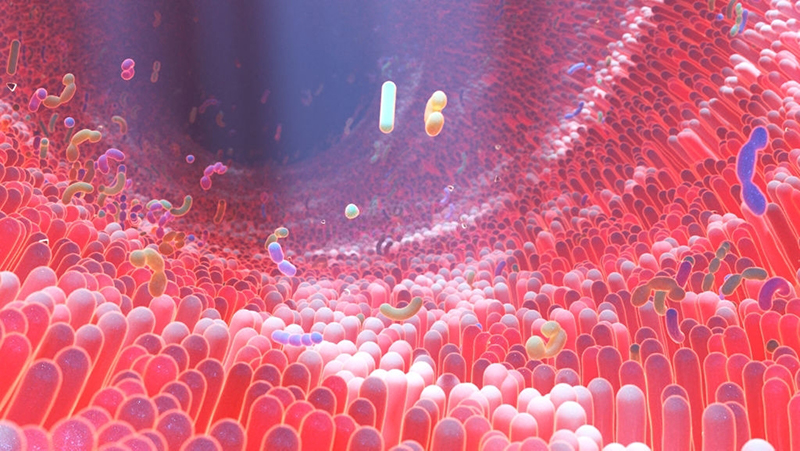When you go to the grocery store, you’re likely to come across a variety of things that include probiotics, which are friendly microorganisms that are mostly bacteria but can also be yeast.
Probiotic smoothies, chocolate, and granola bars are all available, as are probiotic tablets and powders, thanks to their popularity. probioticseverything.comis probiotic good
Though they’ve gained popularity in the last two decades, “probiotics have been been consumed by humans in one form or another for more than 100 years,” says Susan Lucak, MD, a gastroenterologist in New York City and a special lecturer at Columbia University’s College of Physicians and Surgeons. probioticseverything.comis probiotic good
Lactobacillus and Bifidobacterium are two of the most prevalent probiotic bacteria on the market. While probiotic supplements claim to have a variety of overall and digestive health benefits, supplement dosing and strains included vary widely, and not everyone requires one.
Probiotics Have a Wide Range of Potential Benefits
Probiotics may be the greatest option for those trying to improve their health due to a variety of ailments. Some studies on the benefits of probiotics have discovered the following:
- Probiotics may help with a variety of digestive issues, such as diarrhea, gas, cramping, and abdominal pain, all of which are symptoms of IBS (IBS). Probiotics can help ease certain IBS symptoms, according to a study published in Alimentary Pharmacology & Therapeutics in February 2018. probioticseverything.comis probiotic good
- Probiotics may be beneficial to oral health. According to a meta-analysis published in the Journal of the Indian Society of Periodontology in 2016, there is growing evidence that probiotics can lower the bacteria that cause gum disease.
- Allergies may be alleviated by probiotics. Because of evidence that probiotics aid to boost the body’s immune response, a study published in June 2018 in Clinical and Molecular Allergy indicated that they are promising in the treatment of dust mite allergies.
- Probiotics may be beneficial in the prevention of upper respiratory infections. Probiotics dramatically reduced the prevalence of upper respiratory infection in persons who had the common cold, according to a study published in Synthetic and System Biotechnology in June 2018. Probiotics, according to the researchers, aided to enhance the immune system.
- Probiotics may aid in the treatment of acne. Acne is linked to a skin bacteria called Propionibacterium acnes, according to a review published in Dermatologic Therapy in April 2020. Probiotics may inhibit this bacteria. Probiotics could be used in addition to normal acne treatment for mild-to-moderate acne vulgaris, according to the researchers.
Who Shouldn’t Consume Probiotics?
Some people experience symptoms such as gas, bloating, and abdominal discomfort after taking probiotics. Most people will only experience these symptoms for a short time; nevertheless, side effects are more probable among the extremely young and old, as well as those with weakened or damaged immune systems, such as those with HIV or terminal illnesses. Indeed, probiotics may not be beneficial to persons who are already sick. probioticseverything.comis probiotic good
According to Lucak, one major problem is that probiotics are not regulated by the Food and Drug Administration (FDA). As a result of their classification as a food supplement, the makers’ health claims are not subject to verification and may not be accurate. As a result, evidence suggests that strains and concentration per dose can differ from one company to the next — and even from one bottle of the same brand to the next. probioticseverything.comis probiotic good
Keep in mind that the effects of one probiotic strain may not be replicated by other strains or even different preparations of the same species or strain. If one type of probiotic causes gas and bloating, consider switching to a different one to see if it works better for your digestive system.
“It’s impossible to objectively assess the efficiency of one formulation against another because the quality and quantity of probiotics are not controlled by the FDA,” Lucak explains.
Choosing Probiotics: Expert Advice
Live cultures, such as those found in yogurt, and dormant (but still living) cultures, such as those found in capsules, are the two types of probiotics available. Here are some pointers to consider if you wish to try probiotics. probioticseverything.comis probiotic good
- Make a choice between meals and supplements. Probiotics in food have the added benefit of including other helpful components, such as dietary fiber, which supports digestive health. However, most experts believe that whether you take probiotics as supplements or through your diet is a personal choice.
- Keep an eye on the expiration date. Because probiotics are living organisms, the amount put into the container or pill when it was made may differ from the amount you get when you use it. To ensure that the probiotic is still functional, you must utilize these goods before the expiration date. probioticseverything.comis probiotic good
- Investigate the situation. Be mindful that if your doctor advises a specific species and strain of probiotic, you may have trouble finding it. Many producers do not specify which strain is contained in their product; instead, they merely name the species (e.g., Lactobacillus acidophilus or Bifidobacterium lactis). If you’re looking for a specific probiotic strain that isn’t listed on the label, contact the manufacturer to inquire. This information could also be found on the business’s website. probioticseverything.comis probiotic good
- Be careful what you buy. To avoid getting conned, don’t buy anything online unless you know and trust the company. Keep in mind that the cost of probiotics can vary greatly, and a greater price does not always imply a higher quality product.
If you decide to try probiotics, make sure to follow the package instructions for storage; some must be kept in the refrigerator. probioticseverything.com
Before including probiotic foods or supplements in your diet, consult your doctor or a registered dietitian nutritionist (RD or RDN). Some probiotics can cause drug interactions. Based on your age, health, and medical history, your doctor can help you decide if probiotics are good for you.

